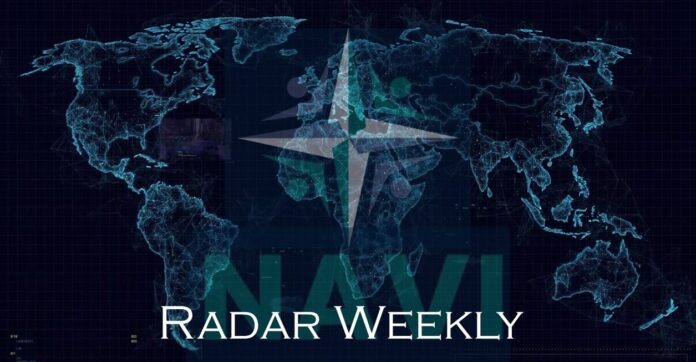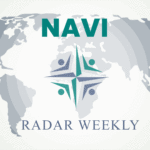Focus Point: Security and Defense Policy- Great Power Competition-China
How Primed for War Is China? by FP
04.02.2024 How likely is China to start a war? This may be the single-most important question in international affairs today. If China uses military force against Taiwan or another target in the Western Pacific, the result could be war with the United States—a fight between two nuclear-armed giants brawling for hegemony in that region and the wider world. If China attacked amid ongoing wars in Ukraine and the Middle East, the world would be consumed by interlocking conflicts across Eurasia’s key regions, a global conflagration unlike anything since World War II.
How worried should we be?
Notwithstanding the recent flurry of high-level diplomacy between Washington and Beijing, the warning signs are certainly there. Under Chinese President Xi Jinping, Beijing is amassing ships, planes, and missiles as part of the largest military buildup by any country in decades. Notwithstanding some recent efforts to lure back skittish foreign investment, China is stockpiling fuel and food and trying to reduce the vulnerability of its economy to sanctions—steps one might take as conflict nears. Xi has said China must prepare for “worst-case and extreme scenarios” and be ready to withstand “high winds, choppy waters, and even dangerous storms.” All of this comes as Beijing has become increasingly coercive (and occasionally violent) in dealings with its neighbors, including the Philippines, Japan, and India—and as it periodically advertises its ability to batter, blockade, and perhaps invade Taiwan.
Many U.S. officials believe the risk of war is rising. CIA Director William Burns has said Xi seeks the capability to take Taiwan by 2027. And as China’s economy struggles, some observers—including, reportedly, U.S. intelligence analysts—are looking for signs that a peaking China might turn aggressive in order to distract attention from internal problems or to lock in gains while it still can. FP
Focus Point: Regional Security- NATO
Chair of the NATO Military Committee at Leangkollen Security Conference: “by preparing we ramp up our resilience and our deterrence” by NATO
06.02.2024 On 6 February 2024, the Chair of the NATO Military Committee, Admiral Rob Bauer, delivered a speech at the Leangkollen Security Conference in Oslo, Norway, emphasizing that NATO has entered a new era of collective defence.
Admiral Bauer said that we face the most dangerous world in decades as the rule-based international order is under unimaginable threat. The Admiral stipulated that the prevention of war should be a whole-of-society event, “if we prepare, we ramp up our resilience, we ramp up our deterrence, and we minimise the chance of an adversary ever attempting to start conflict”. He added that NATO has undergone unprecedented change at an unprecedented pace. A prime example is the Finnish and soon-to-be Swedish accession to the Alliance, which bolsters security on NATO’s Northern Flank.
As NATO turns 75 this year, Admiral Bauer highlighted that throughout its history NATO has demonstrated an unparalleled ability to unite, adapt and protect. Underscoring that in this new era of collective defence, that ability is crucial: “At a time when global security threats are multiplying and our values are under attack, we need a shield against aggression more than ever”, he added. NATO
Focus Point: Regional Security- Indo-Pacific
No fast track to a stable rules-based international order: Ukraine and Gaza wars complicate EU engagement in the Indo-Pacific by EGMONT
07.02.2024 The third EU Indo-Pacific Ministerial Forum in Brussels on 2 February 2024 confirmed that EU cooperation with the Indo-Pacific region is alive and well.
The Indo-Pacific has become – and will remain – the world’s centre of gravity. With almost half the world’s population and half its GDP, it is the beating heart of the global economy. It is also where the arteries run: 60% of the world’s seaborne trade – by volume – passes through Indo-Pacific waters. Much of it involves the EU. As the EU’s second-largest export destination, the region relies heavily on the EU as its primary source of foreign direct investment. The prosperity of the EU depends on the stability and prosperity of the Indo-Pacific. The Indo-Pacific also plays a pivotal role in the broader geopolitical landscape as the epicentre of the global competition between the United States and China. The EU and the Indo-Pacific are intertwined geopolitically, with any turmoil in the region directly impacting the EU. The Indo-Pacific is also home to some of the world’s largest greenhouse gas emitters, notably China and India. Climate action will only be effective with these countries on board.
The end of the Cold War and accelerating globalisation, technological advances, and growing interdependence have transformed the world into a single strategic theatre, with the Indo-Pacific at its centre. The EU’s increased engagement in the Indo-Pacific is a recognition of this reality. No doubt, with Ukraine in mind, India’s Foreign Minister Jaishankar nevertheless last year urged Europe to “get out of the mindset that Europe’s problems are the world’s problems, but the world’s problems are not Europe’s problems”. Conversely, the Indo-Pacific is affected by developments on the European continent. “Ukraine today could be East Asia tomorrow”, Japan’s Prime Minister Kishida said a few months after Russia invaded Ukraine in 2022. Many interpreted this as a reference to China’s increasingly assertive behaviour. Concerns arose that China might take military action to control Taiwan. The most prominent links between the war in Ukraine and the Indo-Pacific region are the “no limits” partnership that China and Russia declared in February 2022, just days before Russia invaded Ukraine, and North Korean arms shipments to Russia. The war in Gaza also casts a harsh light on the perceived double standards of the West in dealing with the humanitarian situation of the Ukrainians and the Palestinians in Gaza, respectively. At the Forum, the foreign ministers of Indonesia and Singapore recalled the importance of uniform application of international law. EGMONT
Focus Point: Security and Defense Policy- Russia-Ukraine War
The Black Sea Fleet meets the “special military operation:” Contested Supremacy over the Ukrainian Maritime Forces by FPRI
07.02.2024 Key Findings
- Russia’s Black Sea Fleet’s supremacy on the Black Sea naval theater was contested in the early stage of the conflict. Ukraine’s anti-surface and drone capacities have challenged the Black Sea Fleet’s supremacy at sea, creating a form of sea denial.
- The Black Sea Fleet adapted its posture to a conflict of attrition. The scope of the missions fulfilled by the Black Sea Fleet has increased over time to include more protection and detection tasks, while active defense remains the general posture at sea.
- The post-conflict Black Sea Fleet should be more littoralized than before the “special operation.” Lessons already learned from conflict, constraints created by the sanctions, and financial priorities should accelerate the littoralization and the kalibrization of the Black Sea Fleet. fprı.org
Focus Point: Emerging Technologies & Data- Artificial Intelligence
A roadmap for a US-China AI dialogue by Brookings
10.02.2024 hen President Joe Biden and General Secretary Xi Jinping met in California in November 2023, their governments announced a new bilateral channel for consultation on artificial intelligence (AI). If both governments scope this effort wisely and focus on several concrete, tractable issues, they may have an opportunity to make lasting progress in reducing risks and building consensus around the governance of emerging technologies. If they fail to coalesce around common objectives, though, they risk creating another forum for ritual airing of grievances. This window of opportunity may be fleeting, so they must use it purposively.
What makes it so challenging for the two governments to, as Biden put it, “get our experts together to discuss risk and safety issues associated with artificial intelligence” is that the specific problem at hand is not widely agreed on between or even within the two countries. Indeed, while the White House readout said Biden and Xi “affirmed the need to address the risks of advanced AI systems and improve AI safety through U.S.-China government talks,” China’s official Xinhua News Agency was more circumspect, writing that “establishing a dialogue between governments on artificial intelligence” was one area in which the two leaders agreed to enhance cooperation. Brookings
Focus Point: Regional Security- NATO
NATO chief warns over undermining security after reckless Trump comments by rte.ie
11.02.2024 NATO chief Jens Stoltenberg has warned against talk that “undermines security” after former US president Donald Trump threatened to encourage Russia to attack NATO members who were not fully paid up.
“Any suggestion that allies will not defend each other undermines all of our security, including that of the US,” Stoltenberg said.
Mr Stoltenberg’s comments were echoed by European Council President Charles Michel, who called Mr Trump’s comments “reckless”.
US President Joe Biden slammed the comments as “appalling and dangerous”, warning that Mr Trump intends to give Russian leader Vladimir Putin “a greenlight for more war and violence”.
“Donald Trump’s admission that he intends to give Putin a greenlight for more war and violence, to continue his brutal assault against a free Ukraine, and to expand his aggression to the people of Poland and the Baltic States are appalling and dangerous,” Mr Biden said in a statement
Mr Trump earlier threatened, in the event he is re-elected in the United States, that he would not defend NATO members who had not met their financial obligations, and would “encourage” Russia to attack them.Focus Point: Security and Defense Policy- Russia-Ukraine War. rte.ie
Focus Point: Security and Defense Policy- Great Power Competition-China
Numbers Matter: Defense Acquisition, U.S. Production Capacity, and Deterring China by Govini
February 2024 What is the current state of production capacity across America’s industrial base, compared to adversaries such as the People’s Republic of China, which the U.S. military calls our principal pacing threat?
U.S. domestic production capacity is a shriveled shadow of its former self. Crucial categories of industry for U.S. national defense are no longer built in any of the 50 states. With just 25 well-constructed attacks, using any of a variety of means, an adversarial military planner could cripple much of America’s manufacturing apparatus for producing advanced weapons.
Under the current U.S. government approach, industry cannot meet production demands to support allies under fire and deter war in the Pacific. Using case studies of munitions and shipbuilding production, this analysis delineates the current state of affairs in the defense industrial base and provides pathways to mitigate, if not end, this strategic vulnerability.
Govini has new analysis out in their paper “Numbers Matter: Defense Acquisition, U.S. Production Capacity, and Deterring China” It’s terrifying. – Between 2005 and 2020, the level of Chinese suppliers in the U.S. supply chains has 𝗾𝘂𝗮𝗱𝗿𝘂𝗽𝗹𝗲𝗱. – Between 2014 and 2022, U.S. dependence on China for electronics increased by 𝟲𝟬𝟬%. – More than 𝟰𝟬% of the semiconductors that sustain DoD weapons systems and infrastructure depend on Chinese suppliers. – With just 𝟮𝟱 𝘄𝗲𝗹𝗹-𝗰𝗼𝗻𝘀𝘁𝗿𝘂𝗰𝘁𝗲𝗱 𝗮𝘁𝘁𝗮𝗰𝗸𝘀, using any of a variety of means, an adversarial military planner could cripple much of America’s manufacturing apparatus for producing advanced weapons. Their recommendations: 1) Ramp up the purchase of critical arms and platforms 2) Incentivize partnerships that facilitate innovation and cost-reduction in major platforms 3) Give every DoD acquisition manager AI-enabled software platforms to run defense programs. 4) Form a $10B fund to acquire critical components required for extended conventional strike, shipbuilding, and advanced jets. 5) Create a DIA open-source office to detail China’s entire domestic defense industrial base. The entire paper is only 13 pages. It’s worth your time. Find the link in the comments below.(summirized by Jakop Horne)
You can download the full report here
Thank you very much for reading.
The NAVI Research Institute is the research division of NATO Veterans Initiative - NAVI that provides a unique perspective to transatlantic leaders and societies on peace and security through the lens of NATO's founding principles of rule of law, democracy, human rights, and individual liberties. The NAVI Research Institute was officially established by the NAVI Board on July 16th, 2023.



